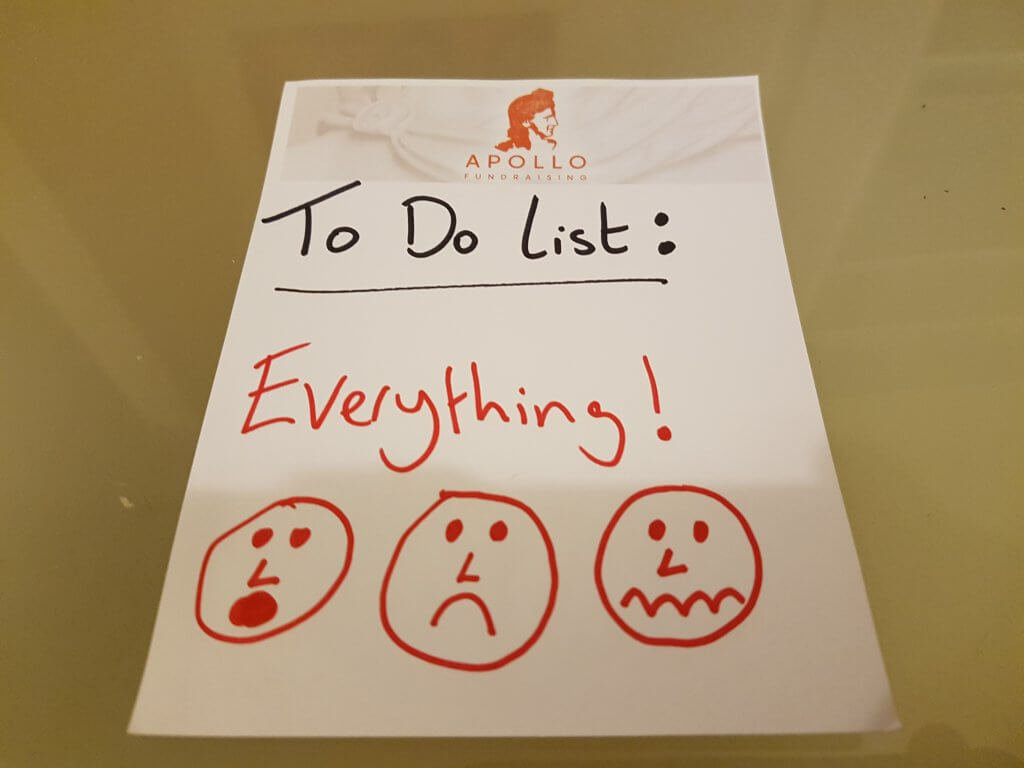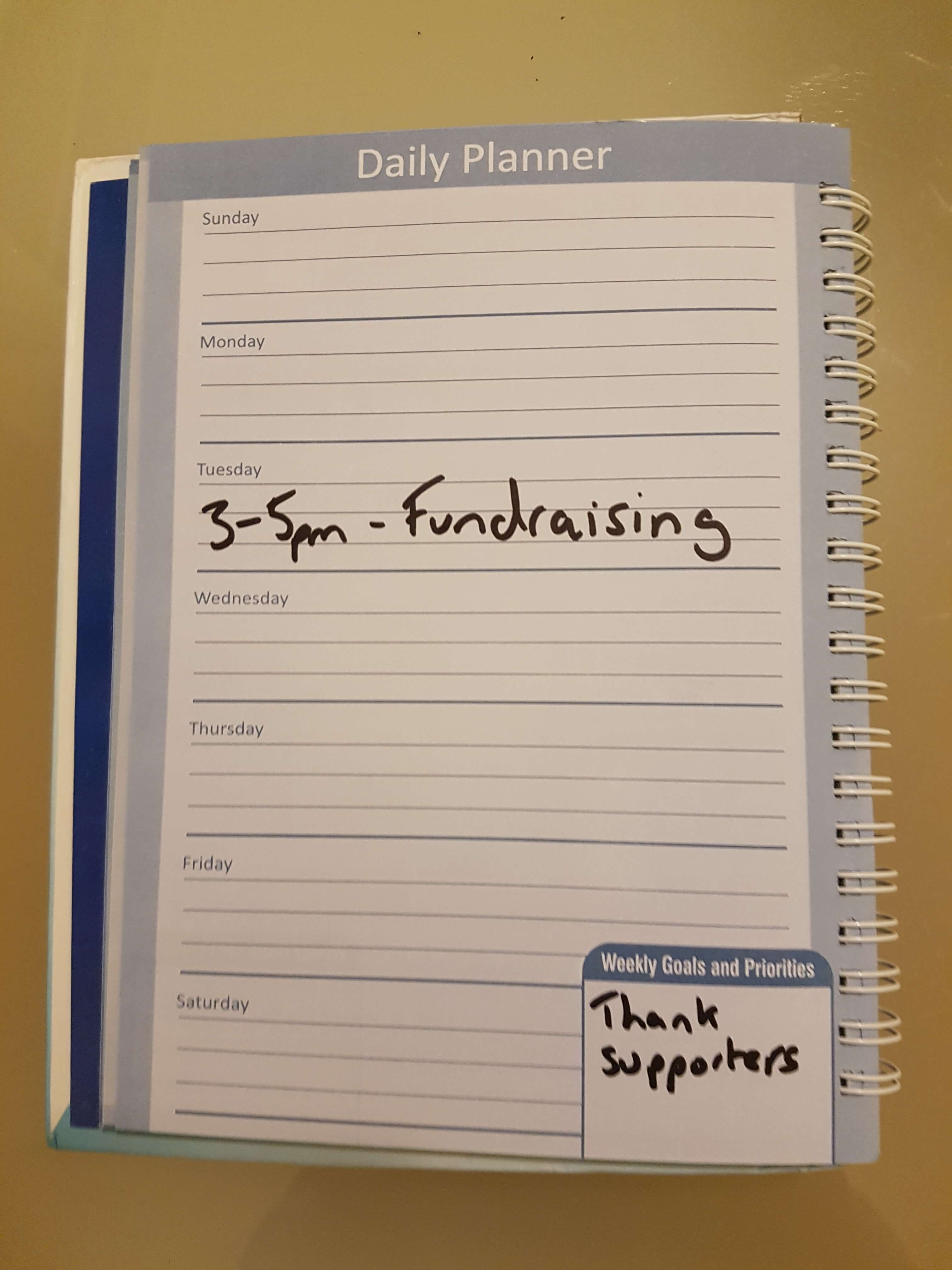
Fundraising without a Fundraiser
Fundraising isn’t free money. It requires time and effort to identify potential supporters, build relationships and look after people that have given gifts. For a number of funding streams, such as corporates and major donors, it can also take financial investment.
Dedicating time to fundraising is one thing if you have a Fundraising or Development Team, but what if your organisation relies on one or two people playing every role from Artistic and General Director to Office Secretary and everything in between?
The fact you are a small organisation doesn’t change the rules of fundraising but that doesn’t mean it is game over.
Three Advantages of not having a Fundraiser
Having a Fundraiser on your team isn’t a silver bullet. In fact, there can be some advantages to not having a member of the team with sole responsibility for Fundraising. These advantages include:
Having a better understanding of the project – without a Fundraiser, it is likely that your Artistic Director and/or Project Manager are going to have to take the lead on securing the funds for their own projects. As the driving force behind the project they are in the best position to talk passionately about the work and why it is important. They are often better placed to convey the excitement of the project than a Fundraiser, who can be one or two steps removed from the process.
Having a closer relationship with supporters – given a choice, most supporters would much rather talk to the Artistic Director and the ‘frontline’ team than the Fundraising Team (sorry Fundraisers!). You are the people bringing the work to life. We often take the creative process for granted as we see it on a day-to-day basis. However. for supporters, you represent a magical world that is very different to their own. Having a direct connection with you is much more preferable than having to go through an intermediary.
Fundraising becomes a Team Game – Fundraising should be a team sport. It relies on different people bringing different skills and playing different roles. However, having a Fundraiser can mean that others neglect their roles, assuming the Fundraiser will take responsibility for everything. Having the relationship held with just one person is not ideal and can cause your organisation problems as and when that person leaves. Without a dedicated member of staff everyone on the team has to play a role, meaning the relationships are held more securely within the organisation.

However, in order to maximise these advantages you will need to be proactive. Here are some tips for smaller organisations:
Top Tips
Prioritise – each of the different funding streams (individuals, trusts, corporates etc) have different rules and require different skills. As a small organisation, it is unlikely you will have the resources to fundraise from all of the different streams. Identify the stream, or streams, that are the best fit for your work and that offer the greatest potential for your organisation. This will reduce the risk of spreading yourself too thin.
Put time aside each week for fundraising – this might be easier said than done. However, putting aside even a small amount of time each week to focus on fundraising can pay dividends. At first you will need to use this time for identifying potential supporters and securing your first donations. As you start securing gifts, looking after your existing supporters needs to become a priority – it is easier and more efficient to retain your existing supporters than it is to keep recruiting new ones.
Pick your A-Team – while there are definitely advantages to having a Fundraiser, or Fundraising Team, recruitment isn’t the only way to resource this. Volunteers, board members, existing supporters and artists are just some of the people close to you that could help with fundraising. Identify the roles you need for researching, cultivating, asking and thanking supporters, and the skills needed. Then consider who in your network has these skills and could take responsibility for the steps.

Make your supporters part of the team – supporters don’t just provide financial support. There are other ways they can help. Use the fact that you can build genuine relationships between your supporters and everyone on your team to your advantage. Bring them in, ask for their advice and let them see some of the other challenges that they can solve. This could include helping to build up a community of supporters – a peer-to-peer, donor-to-donor ask is incredibly strong, while potential new supporters can be motivated by the social benefits of being part of a group.
Seek Professional Help – if you are reliant on fundraising for the long-term sustainability of your organisation, recruiting a Fundraiser now could be a wise investment. While it might take a year (0r more!) before you see a return, a good fundraiser with a clear strategy can provide a better return than investing in stocks and shares (or leaving the money sitting in reserves in a zero-rate bank account). If recruiting isn’t appropriate, there are other professionals that might help you – consultants can help develop the most appropriate fundraising strategy for your work, resources and skills, while freelance bid writers can help you to secure funding from grants.
The final tip is to remember that there is no rule that says you have to fundraise. Fundraising is just one source of income. If it is not right for you it might be time to find a different approach. This could include repayable finance, social investment, commercial income, earned income, statutory grants or contracts. All of these sources of funding have their own rules. You need to find the right mix for your organisation.
